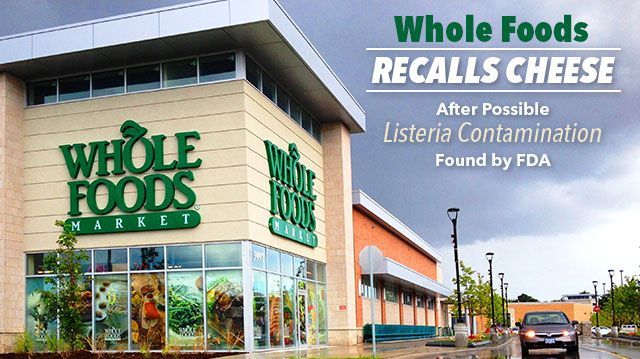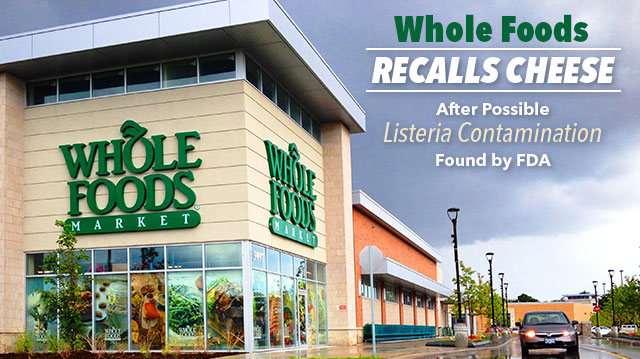
Yet another food contamination in the United States as Whole Foods recalls cheese that was sold in stores nationwide, according to a Whole Foods press release issued October 7.
This may trigger the third listeria outbreak this year, which has seen listeria outbreaks from Blue Bell Creameries Ice Cream products and soft cheese contamination distributed by Karoun Dairies, according to the Centers for Disease Control and Prevention (CDC).
The possible contamination was uncovered after a U.S. Food and Drug Administration (FDA) sampling found listeria monocytogenes in a wheel of Whole Foods cheese. The nationwide recall applies to Whole Foods cut, wrapped and weighed Papillion Roquefort cheese. The possibly contaminated cheese was wrapped in clear plastic wrap and sold with Whole Foods Market scale labels, according to the company’s press release.
Is it even safe to buy food at restaurants and grocery stores anymore? How great is the risk?
Listeria can cause severe illness and may be fatal for specific groups of the population. Anyone with a weakened immune system may be at a significantly higher risk of life-threatening health issues associated with a listeria infection, according to the CDC. Pregnant women, infants, the elderly, and those with compromised immune systems, including people with HIV, cancer and diabetes, are most at risk.
The FDA has also warned that listeria can spread once it has hit your kitchen counters and refrigerator shelves. The FDA states, “Contaminated food can bring Listeria into the home. Unlike most bacteria, Listeria germs can grow and spread in the refrigerator.” If you or anyone you know has shopped at Whole Foods, be sure to ask them if they bought any cheese, specifically Roquefort.
Here are a few alternative tips that may reduce listeria contamination in your kitchen and home.
- Keep your refrigerator cold, 40°F or lower.
- Wrap and cover foods properly using plastic wrap or containers.
- After three days, ditch your leftovers.
- Clean your refrigerator. The FDA recommends using throwaway paper towels instead of cloth towels, which can transfer germs to other areas of your kitchen.
- Always keep your countertops and hands clean while preparing and cooking your food.
- Stay up to date on the latest recalls and foodborne illness outbreaks by visiting the CDC and FDA websites regularly.
 Though there have not yet been any reported illnesses due to this latest listeria contamination, the recall is discouraging. “No illnesses or infections have been reported to date. Signage is posted on retail store shelves to notify customers of this recall, and all affected product has been removed from shelves,” Whole Foods stated in the recall statement posted on their website. They have also requested all customers that have purchased the recalled cheese to bring in their receipts for a full refund.
Though there have not yet been any reported illnesses due to this latest listeria contamination, the recall is discouraging. “No illnesses or infections have been reported to date. Signage is posted on retail store shelves to notify customers of this recall, and all affected product has been removed from shelves,” Whole Foods stated in the recall statement posted on their website. They have also requested all customers that have purchased the recalled cheese to bring in their receipts for a full refund.
Do you shop at Whole Foods? If so, will this possible contamination steer you away from the Whole Foods “Healthy Living” lifestyle?
—Stephen Seifert
Stephen Seifert is a writer, professor, adventurer and a health & fitness guru. His flare for travel and outdoor adventure allows him to enjoy culture and traditions different than his own. A healthy diet, routine fitness and constant mental development is the cornerstone to Stephen’s life.
Sources:
http://www.wholefoodsmarket.com/product-recalls
http://www.fda.gov/ForConsumers/ConsumerUpdates/ucm274114.htm
http://www.cdc.gov/listeria/outbreaks/
http://www.cdc.gov/listeria/risk.html

